TRANSFORM YOUR TEAM'S SEASON WITH PROFESSIONALLY PLANNED SESSIONS
Use our expert plans or build your own using our library of over 700+ drills, and easy-to-use tools.
JOIN NOWI have just started helping our head coach with under12's team. He wants to retire and has put me forward to be head coach next season. I am a little worried on how i should aproach training with the boys, going to a full 15 a side team on a full pitch. Any ideas would be greatly appreciated.
just slowly bring in the concepts of positions/ tackling/ rucking mauling. i have been coaching under 13's this year and found that they love contact and running alone into trouble try its now that i am getting them working as a team and off laoding and playing into space. hope this helps???
Thanks for that Luke. I agree finding space is the key i think. Good luck with your lot as well
Safety in contact is paramount at this age given the differing sizes and ability levels so make sure all the boys are well versed in tackle, ruck, maul and scrum techniques. Try to include warmup/cooldown as part of your training regimen so that it becomes "normal" behaviour as the boys grow up - none of us are that great in this area but we should at least try and get the boys to think about protecting and helping their bodies at this vulnerable stage in their development.
As far as game-play goes, agree with Luke, encourage teamwork. It takes a lot of work to transform a squad of 15-20 individuals into a team but it can be done with perserverence and is rewarding - use drills from this website that coach support play and decision-making. From my experience, nothing is more disheartening to players than not getting any ball and this is a team game after all so try to include backline drills that promote quick passing down the line. Good luck
Cheers Hong Kong,
Good pointers. Thanks
To start with you need to plan out your sessions. Pre season fitness and basic skills.
Then you need to sort your team in positions. Forwards and Backs, then individual positions in the forwards and backs. Hopefully you have some help. As the forwards at this age need a bit more work with the technical aspects of the scrum and line out. Then a general work through ball handling and tackling.
Obviously tackling needs some attention as incorrect tackling can lead to serious injury. If you have new players in the team, or players that have crossed over from another code, I have a general set of rules for them and try to promote fair player, and the referee is always right.
As the season approaches I break my training days into early in the week fitness and skills. The second training session is game day plans. I walk through the whole game from kick off to receiving, what to do at the break down, and set plays from the breakdown. Usually at this point I have broken the training into forwards and backs, and run the forwards together, stopping and slowing the whole game down so that we walk through in slow motion what we are trying to achieve both as a forward group and a back group. Towards the end of the session we run through the set palys as a group.
Obviously it is a bit difficult if you do not have the numbers to run full scrum sessions so I break the scrum up and run three/three scrums to introduce a bit of competition. There are some good drills to practice scrummaging here and you will just have to spend some time looking through them all. I have then made a practice session book, where I have printed out the sessions and use them for training.
I really think the key is to plan out what you intend to do and as the season progresses work on the areas where you feel the team is falling down. Even if you have to devote most of the training session to those areas it is the only way to progress.
Good luck and enjoy.
Hi Steveb
Thanks for that. Really apreciate your comments. That makes a lot of sense, especially with the forwards.
Darren
A few push ups and sit ups with a dynamic stretch is all they need towards their fitness. A pre season fitness plan is very unnecessary. Toughen them up and improve their endurance by having long hard games at the end. Also encourage them to work hard manually doing jobs at home. Nothing is better for a rugby player of this age then toughness and a good work ethic.
Protecting the ball at ruck time is the most important basic at u13 level (tackling goes without saying). Get them to effectively drive over the ball and dominate the space behind the ball carrier with good presentation. Other u13 teams that spend less time on rucks will find it hard to cope.
Have a good pick and drive game with the forwards and start yor best backs at 9, 10, 12 and 13 with your 13 being the fastest. If u split at training have your forwards practicing pick and drive and protecting the ball, and have your backs practicing spreading the ball from 9-13 as quickly as possible.
Then when it comes to game play try get your forward to successfully put a few phases together (picking and driving towards the same sideline) this will suck in the opposition. Have a call your outhalf makes to the 9 that spreads the ball as quickly as they can through the hands to the 13. There should be space for him to attack and potentially an overlap.
Structure isnt as important at this level though id encourage working on game play after strong 8 picks. Forget about mauls..instead have shortened linouts with forward pods outside the 10..set up the ruck after this and spread to the backs.
Remember at its most basic all u need to win a rugby game is tackling, protecting and recycling the ball and getting over the gain line, concentrate on these things and u'l have success with 13s.
Ive had a lot of success at u13 level before using this formula!
Hi Mike,
Thanks for that. The simpler and more direct the better. Its the rucks i need to get them to practise more as it is our weakest parts of the game. Very frustrating sometimes.
I'd go with Breemn...
You don't have time for "fitness" in your extremely limited time with your squad which will be needed ion making sure all their basic skills (personal, unit, team) are practised to the full. On the whole anyway, fitness is an individual thing - they have far more time outside fo practise than in it to do it. added to which at these ages fitness is basic stamina that they can sort themselves ... walking dogs, going for a run (can everyone in your squad run a mile? can you ;-) , swimming etc. Anything that gets them fit and is easy for THEM to organise.
Didds
PS. Not Mike Breen, UCW Abersystwyth circa 1983-84 by any chance?
Haha nah u've the wrong man.. I was born in 1990!!
Thanks for that Ian,
God you guys make me feel ancient. as i have to go back to 1967!!!
Hi graham,
Think about supporting on good things you want them to do both as an individual and a team. The fact is they need to be support on. The harder is to manage the players as he does and inside the team. Don't let any player in a hard way. In U13's they need a lot of confidence.
Don't forget they 're all coming not for the same reason (some of them for friendship, other for competition, ...)
If your players don't reach your goal, make your session easier the upgrade them. Make them succeed.
Hope this will help
It's been a first for me this season as head coach for my local U13's. Wow what a shocker for all involved!! I have had a mass of support from the club and other coaches who have helped me with the smallest of things.
The lads have had to get use to working together more as a team and not being so selfish with the ball, they have also had to adjust to my style of coaching which is very different to that of their previous coach of the last 4 years!
Training twice a week has been a big must and we have really had to focus hard on fitness as playing on a full size pitch has been the biggest challenge. But here we are nearly at the end of the season and we have grown so much as a squad. It's worth remembering that this age their bodies are changing a lot to and safety is paramount, we've suffered a fair few injurys this season!
It will take a few weeks to get into your stride but it won't be long before you all get use to each other and begin to work out the best way to go. Good luck for next season.
Zoe
Hi Olivier,
Merci for the advice much apreciated.
Darren
Hi Zoe,
Sooky sounds similar to me. They have had same coach for past 4 years and i dont want to try and copy him, but do it in my own unique way. Teamwork is a very repeated point which i know i will have to work on as there are 4-5 boys i need to work with who are the glory hunter and selfish types. Also i have 2 monster lads which got to be locks. (Size 11 feet already!) but i also have a few smaller lads which i do not want to see injured.
Fitness - again something i have noted is critical due to the full pitch to be played on.
Thanks for the info Zoe. And good luck with your lads as well
Darren
Darren
Just seen this.
I have just taken over as a Head Coach of U13's this seasion and will stay with them until they become Colts. This is my forth time around and I think its important that as they progress through the age groups that have the continuity of the same Head Coach. Besides the principle role of a Head Coach should be to act as a facilitator. You cannot be an expert for every position and therefore you should identify any coach at a senior level or adult player that can give your players a form of Master Class.
The areas you should concerntrate on are Scrummaging (Tower of Power), Back Row Play, Back 3 to cover wide play (pendulum swinging), tackling (especially at 10, 12 &13) the ability to cover wide, drawing the man and passing in front of the receiver.
Pick your fastest and strongest tackler as an open side flanker but only someone who wants to play in the forwards. Pick a No.10 who can kick well and teach him how to control the game ie when to pass, run straight or kick.
It may all sound daunting but there is a shed load of information on the internet. Also if you become a licenced coach then you get access to the drills on the RFU web site. Stick with it as it is very rewarding when you see your players progress and develop under your coaching umbrella.
Ps. Try to be impartial in player selection and learn to handle the politics when you don't select certain players for certain games.
Good Luck
Mike
Darren,
Some really sound advice from all concerned. Having read all the posts and in the main finding agreement with them, I would pick up on one aspect.
When the players move from U12 to U13, the biggest change is the size of the pitch. It is almost 3 times the size. This means that if they are going to compete for a game that is likely to last 3 times as long and a pitch 3 times as big, your players need to work hard on their fitness before the season starts.
Structuring your pre-season training in July with at least half of your session dedicated to Speed-Agility-Quickness and Endurance is a must. So the first half hour is a warm up over ladders & hurdles, followed by 4x 400m, 3x 300m, 2x200m & 1x 100m. They should be looking to improve their times each week to show progression. This has come from one of the Irish Academy Directors. The reason they cover 3k is that this is the average distance travelled at U13/U14 in the 50 min game.
The other part of your pre season can be dedicated to games where you start to introduce them to positional sense.
Once into August, you start to practice the exploitation of space with the higher levels of fitness and endurance. However, the focus on fitness is still there for the first 30 mins of every session.
At the end of August, you have set piece and starter moves to work on for the backs and forwards, before bringing the whole game plan together for the start of the season.
Mike is spot on with the resources that are available. I have found the Scottish and Welsh unions resources more friendly than the RFUs and easier to find.
All the best.
Andy
Darren, the key at this age is to keep all your 12 year olds involved throughout all sessions. Build in a lot of small group drills for 2- 7 players, rather than full squad drills where there are often several minutes of inactivity before a few seconds of action followed by more standing around. You'll need at least half a dozen balls per team. This way the less advanced squad members all get to practice the key roles and skills more often, avoiding those sessions dominated by the bigger more advanced players. Small group activities are easy to organize if you use a simple grid pattern. The old Welsh coach Ray Williams, used this method as far back as the 60's and many great coaches have used it. Most good coaching manuals have drills which can be adapted. They are great foir fitness also because the activity is quite intense.
Excellent point Neil! Agreed. Lots of small groups to keep everyone involved and busy - and fitter, therefore. Read sth yesterday about getting backs to do forwards drills too and forwards to do backs drills, so everyone, 1, learns to understand the other positions better and, 2, they all develop all the basic skills. (We don't get too hung up on fixing kids in positions forwards/backs till later - ie U16.)
We do a lot of our speed and agility with ball in hand to cover the fitness and pitch-size problem andy mentions. Luckily all my U14s/U12s (no U13s here!) have PE at school and get plety of running!
Good luck!
Darren,
The excellent advice that has already been offered notwithstanding, the following%3A
Probably the mosy important investment you can make in the success of your impending season as head coach of an under 13 squad is undertaking the RFU Level 2 Certificate in Coaching the 15-a-side game. It is not a trivial qualifcation and will equip you with the ability to structure the right mix of technical and tactical coaching, wrapped up in a fun and exciting package for your young charges.
More importantly, it will give you the confidence to take on the role of head coach in a knowledgeable and authoratative manner. Even at under 13, players can sniff out a weak coach and they will not buy into what you are coaching if they do not buy into you as a coach.
Details can be found on the RFU website.
Good luck,
Andy Dalrymple
Berks RFU
Andy Saunders,- he is not coaching the all blacks mate. If u start with a mid July structured pre season...well lets just say that's a very long season. Let them progress with agility by playing bulldog..not ladders. Endurance training? What enjoyment would they get out of it? Endurance in rugby is about 90 per cent heart and determination. The other 10 per cent is is gained by long hard games at training. Respect your opinion btw just want to hear your argument %3A-)
I would like to thank you all for some excellent points. Been a busymmer with courses but getting there. Its starting to come together but all tips greatly recieved.
Some good points. I would simplify by saying:
1. Some fitness is important, especially dynamic stretching. Incorporate endurance, sprinting as much as possible into game play to keep them focused.
2. Always have a plan. This maybe should be number 1. Write it down. We use a Skills/Drills/Thrills format. The skills is any talking, slow review. We keep this very short. Drills are used to practice the skill and get it right. No more than 10 minutes here. Use stations if possible to make sure there are a high number of reps and nobody is standing around. You can have more than one related skill being reviewed (i.e. clear out techniques) if you have enough coaches. Thrills are games that use the skill. If you are working on offloading, use an offload game. Rucking, ruck-touch or other forms of games to keep all players invovled and moving.
3. Ask questions. Make the players responsible for input into the session. Once season starts, ask them to review their game performance. What they did well, what they did poorly.
4. Tackling/Scrum/Set Piece. Need to focus on these in isolation at this age until the skills are there. Progress from walk through, to bag, to slow contact on tackle prior to full contact. Form, form, form.
Good luck!
Core skills, core skills, core skills.........all in a game sense environment...oh, did I mention core skills???
fitness will come with plenty of activity, rather than lots of talk, which is what most coaches I observe seem to do, they spend 10 mins of explanation for a 2 min practice......let them play the game!!!
......I am going to try to get around the U13 games for your leagues as I will likely be taking representative head coach role, so will try to attend your game against Wanstead in Jan
Sorry, march!
I Coach the chelmsford U16s rhinos, so am always out and about. Ipswich last weekend
Hi,try and do some rfu courses ie Level 1 at least and look at some RFU CPD ON RFU WEBSITE.
You will be able to get some great ideas off YOUTUBE which has an amazing amount of info on it. Also dont be afraid to ask for help from other coaches or even senior players at your club usually they will only be too pleased to help.
Good Luck and enjoy it
Hi I am a player in the u13. The team should already have a god understanding of rucking, scrummaging etc... so what I think you should work on is the turn over right after a tackle. Also, as players grow at different speeds at this age, when playing other teams there will be giants so also focus on popping out of the tackle to ad lid the ruck in the first place.
i hope this is useful.
Make sure you make time for the forwards in the training and in the pre-match warm up. If you have players who have been with you for some time like under 7`s through to under 13`s etc they will have been told not much happens for Forward till now. SO make sure that now means they get a specific warm up, scrum training etc. 40 % should be on a scrum machine 60% should be with players in one on one, then one on two, then two on three and so on. Technique is key, balance makes your power useable, all power and no technique will not work in most cases.
Make your scrum safe, simple stuff like when the scum collapses where should their head be etc. Hip position, movement in the scrum as a unit, being prepared to hold the pressure not just engage and chase their feet. sometimes inaction and a hold of the opposition can be really effective because who blinks first can create the gap you need.
Make sure that each member of the scrum knows what their job is and how they can find weakness in the opposition pack. Simple stuff like how well/tight their tighthead is bound to their loosehead.
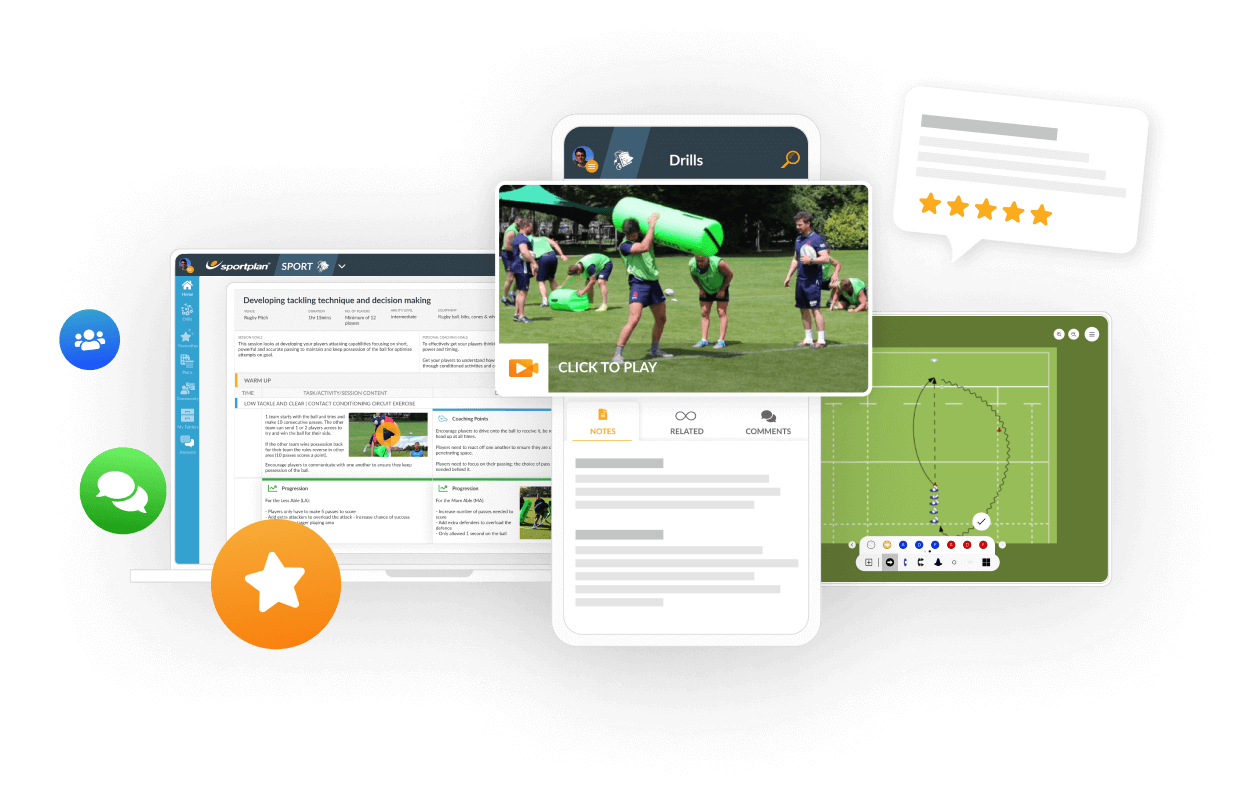
in more ways than one
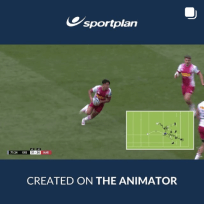
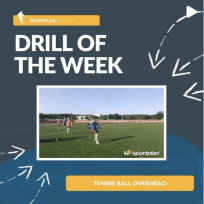
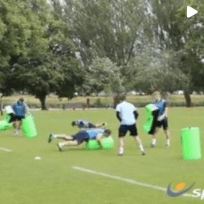
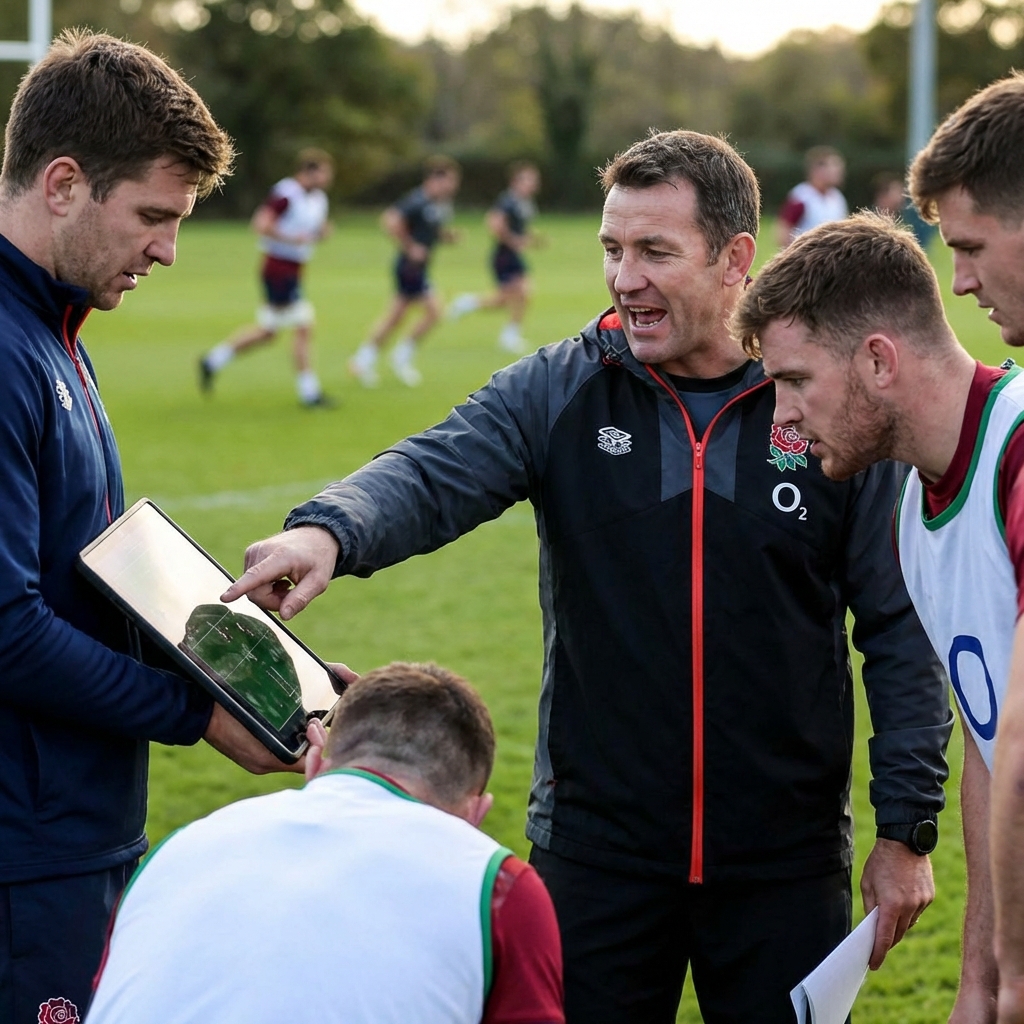
From France's collision dominance to England's folding defence - what grassroots coaches can learn from the 2026 Six Nations.
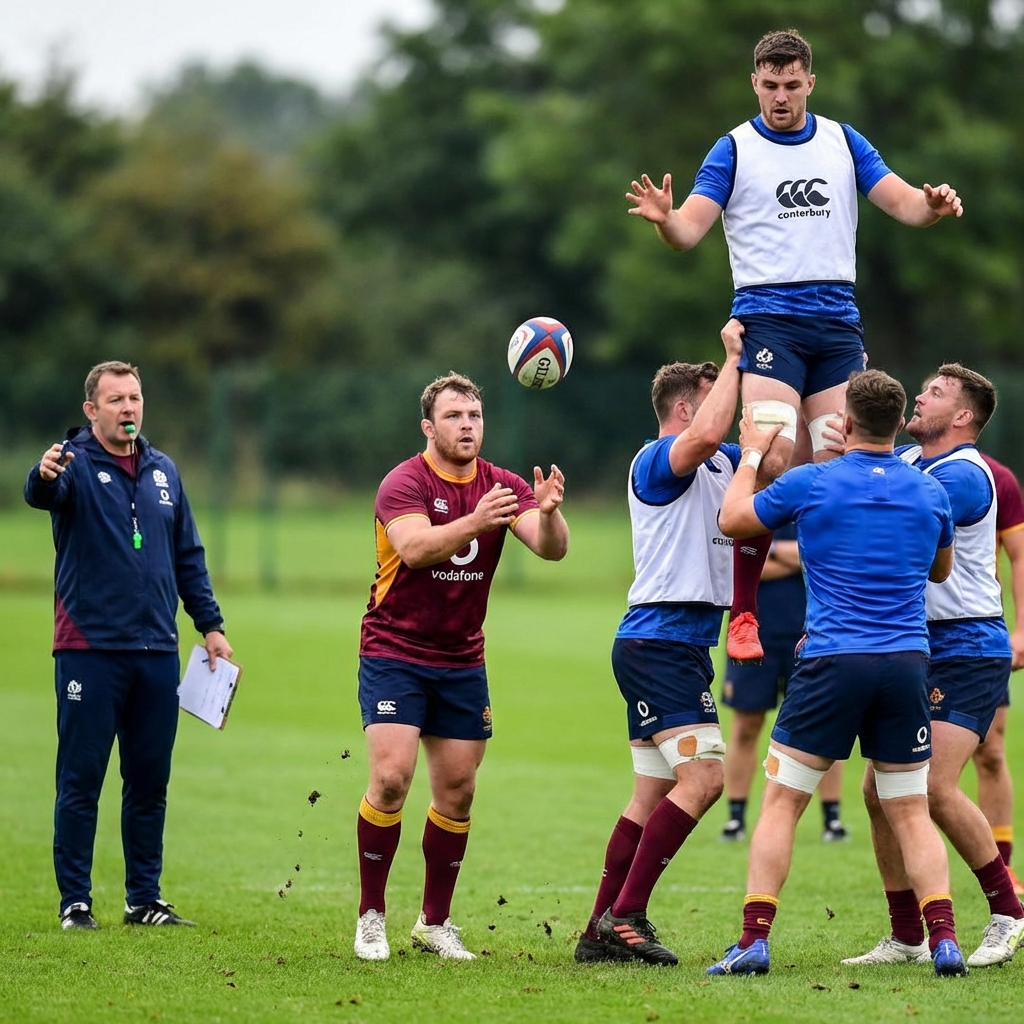
The removal of "not-straight" on uncontested lineouts transforms your set-piece options. Here's how to exploit the new rule.
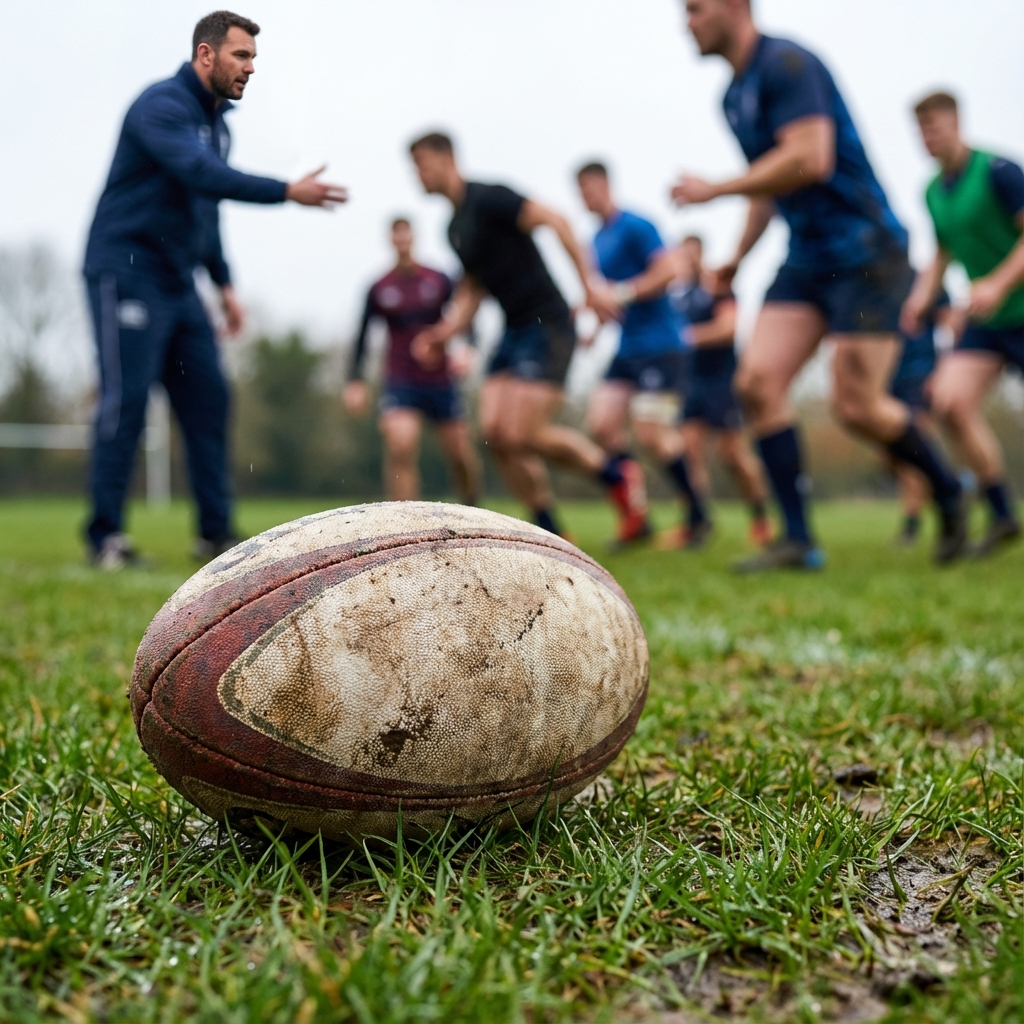
2026 brings revolutionary changes to international rugby: a brand new global tournament, historic tours, and law changes that will reshape the game. Here's everything coaches need to know.
Use our expert plans or build your own using our library of over 700+ drills, and easy-to-use tools.
JOIN NOW